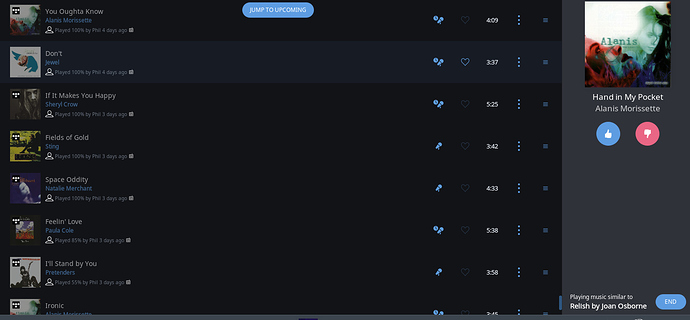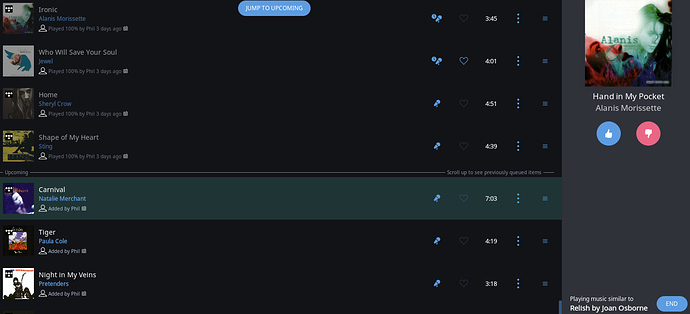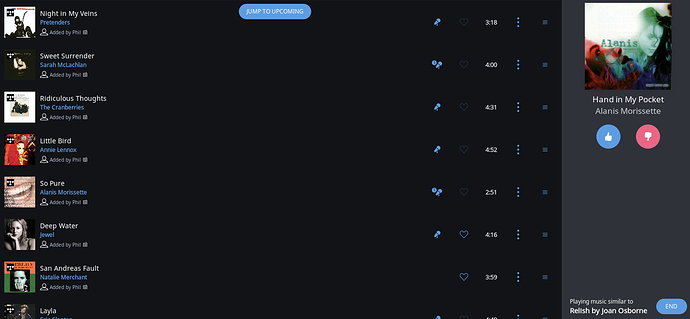First–some framing. Library vs Streaming is the wrong way to think about it–Library has nothing to do with where the files are. You can have a large library from TIDAL and zero files, and you still function in our product like a large library person. Where the content comes from is incidental.
I think the balance is shifting (really…has already shifted, based on our usage data) from files-only collectors to files+streaming collectors. That is the shift that you are feeling reflected in the product with features like Roon Radio.
A steep majority of our users are files+streaming users already. At the same time, we’re seeing the library size statistics slide downwards as we grow as a product and business. We are not quite at the point with the product where someone could walk in with zero library and have a great experience building one up from scratch in Roon, but we will get there. That is an important goalpost in terms of considering ourselves a complete solution.
Lots of people who care about audio are not music collectors first. There is also a batch of relative latecomers to digital music who are introduced to Roon while buying audio hardware. Ten years ago, “rip your CDs” was part of the barrier for entry going digital. Today it’s “log into TIDAL or Qobuz…and maybe rip the few favorites that you can’t find in the streaming services, but don’t bother ripping the other ones.” These people have very different libraries (and disadvantaged experiences in Roon) compared to people like me who have been ripping CDs for 20 years. We are trying to close this gap with some of this work.
The kind of work that you are seeing with radio helps slide the window of “minimum library size required to get a good experience” lower. Other stuff we work on the future will definitely keep this as a goal in mind, in reflection of the actual things that our members are doing with the product.
We are definitely not viewing this as an either or or a shift away from collectors towards streaming users. It’s a reflection of the fact that today’s collectors are streaming users also.
We work on this stuff continuously, and it consumes a serious amount of our R+D budget. It is the only area where we actually have dedicated staff, and it dominates our operations expenses as well.
The problem you’re seeing isn’t “not enough work”, it’s a much more immovable fact of life–improving large, sprawling, mature systems is a lot less efficient than building new stuff. If we spent radio-level effort on metadata over the past year, it would move the needle a lot less for our members. We’ll continue to work on those issues.
One of our most expensive projects last year was completely overhauling Roon’s internal notion of equivalence between artists/albums, which have been the source of the #1 most noisy support topic in the history of metadata and Roon by a large margin. Millions of issues silently repaired in peoples’ libraries, and much less wrong stuff going forward…but not a shiny new feature that gets marketing juice poured over it, so you are not ticking it off in the “effort Roon Labs spent on metadata” column in your mind.

 If you’re interested (and willing to possibly re-tag your collection), I’d be happy to share my list of genres once I get home.
If you’re interested (and willing to possibly re-tag your collection), I’d be happy to share my list of genres once I get home.

